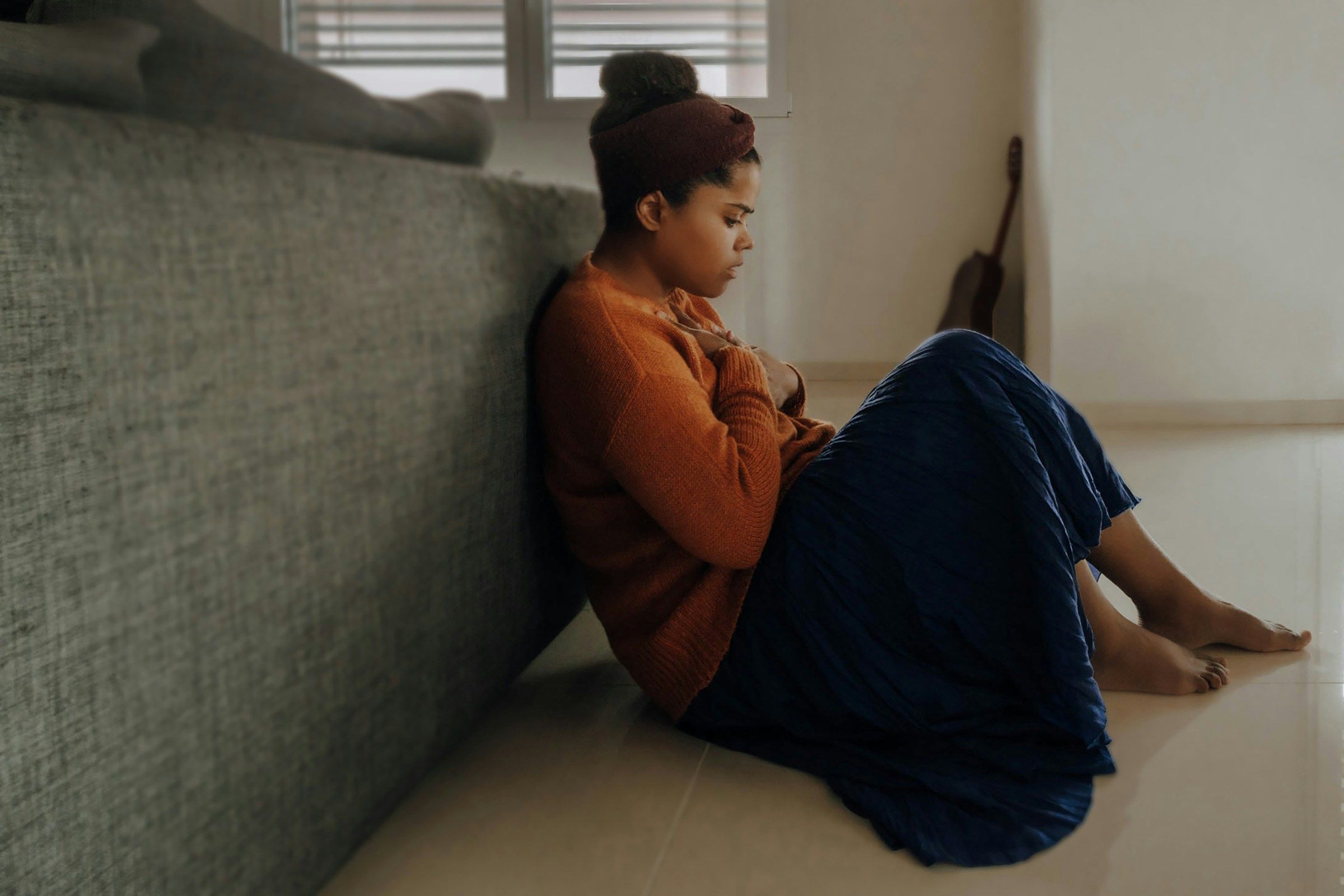Understanding Anxiety Disorders: Symptoms, Causes, and Global Treatment Options

Feeling anxious is something we all experience from time to time. But for millions of people around the world, anxiety is more than just an occasional feeling. In fact, over 264 million people worldwide deal with anxiety disorders.
Imagine constantly feeling worried or fearful, even when there’s no real danger—that's what living with an anxiety disorder can feel like.
In this blog, we’ll cover everything you need to know about anxiety disorders — their symptoms, causes, and the most effective treatments. Let’s get started!
What are anxiety disorders?
Unlike anxiety, which is a common and normal part of life, anxiety disorders are a group of mental health conditions. It is a state when a person experiences excessive, constant worry, fear, or nervousness that is hard to control. As a result, everyday activities become difficult.
As per research, about 31.1% of people deal with some kind of anxiety disorder once in their lifetime
Types of anxiety disorders
There are several types of anxiety disorders. Some of them are:
Generalized anxiety disorder (GAD)
If you constantly worry about things like work, health, or even minor daily tasks, without any obvious cause, you might be experiencing GAD. It’s when anxiety becomes persistent, making everything feel overwhelming and hard to manage.
Panic disorder
You might experience sudden waves of fear or panic that seem to come out of nowhere. These panic attacks can leave you feeling like your heart is racing, you can’t breathe, or you’re about to faint.
Social anxiety disorder
If you get extremely nervous about being in social situations, fearing judgment or embarrassment, that’s social anxiety. It might make you avoid things like public speaking or even hanging out with friends.
Specific phobias
Do you have an intense fear of something specific, like spiders, heights, or flying? That’s a phobia. The fear can be so strong that you go out of your way to avoid that thing.
Agoraphobia
Agoraphobia is when you feel trapped in certain situations, like crowded places or public transportation. The fear of not being able to escape if something goes wrong can make you avoid leaving the house or going out in public.
Separation anxiety disorder
This is when you feel anxious when you’re away from someone close to you, like a parent or loved one. It’s common in children but can affect adults too. Being apart from that person can cause distress, making it hard to be away from them for long.
Obsessive-compulsive disorder (OCD)
If you have repeated thoughts (obsessions) and feel like you must do certain things (compulsions) to ease the anxiety, like washing your hands repeatedly or checking things over and over, you might be dealing with OCD.
Selective mutism
This is when you can’t speak in certain situations, like at school or with strangers, even though you talk normally at home. It usually occurs before age 5. Plus, it is often linked to a fear of embarrassment, withdrawal, and clinging to familiar people.
Symptoms of anxiety disorders
Symptoms can vary depending on each type. However, here are some common signs to watch out for:
Physical symptoms
- Restlessness or feeling on edge
- Fatigue
- Muscle tension
- Headaches
- Nausea
- Insomnia (sleep difficulty)
- Sweating or trembling
- Rapid heartbeat or palpitations
- Shortness of breath or dizziness
Emotional symptoms
- Constant worry or fear, even about small matters
- Feeling irritable or easily frustrated
- Difficulty concentrating
- Feeling like something bad is about to happen
What causes anxiety disorders?
Anxiety disorders can stem from various factors. It’s usually a mix of biology, experiences, and environment:
- Genetics: If you have a family history of anxiety or other mental health conditions, you may be more prone to developing it.
- Brain chemistry: An imbalance in certain brain chemicals (neurotransmitters) can trigger anxiety.
- Life experiences: Stressful events like the death of a loved one, financial problems, or abuse can trigger anxiety.
- Personality: Some people may be more susceptible to anxiety because of personality traits, like being perfectionistic or more sensitive to stress.
- Medical conditions: Certain health conditions, like heart arrhythmias or thyroid disorders, can trigger or worsen anxiety symptoms.
How anxiety disorders are diagnosed?
If you suspect that you or your child has an anxiety disorder, the first step is to see a healthcare provider. They’ll do a physical exam, review your medical history, and may run tests to rule out other conditions, like thyroid issues. If nothing physical is found, they might refer you to a mental health professional.
A psychologist or psychiatrist will ask about your symptoms, daily life, and behavior, using the DSM-5 (Diagnostic and Statistical Manual of Mental Disorders) guide to make a diagnosis.
They’ll consider:
- The severity and duration of your symptoms
- How much they affect your daily life
- What they observe in your behavior
Once physical causes are ruled out, the mental health professional can diagnose the specific anxiety disorder and suggest treatment.
Early diagnosis means better treatment options. And if you need support, you don't have to look far. At Quality Care Global, we can connect you with the best mental health experts worldwide.
Treatment options for anxiety disorders
Anxiety disorders are treatable! However, the right treatment depends on the individual. It might involve therapy, medication, lifestyle changes, or a combination of all three.
Psychotherapy
Psychotherapy, or talk therapy, helps you understand the causes of your anxiety, deal with past issues, and learn coping strategies. It provides support and guidance in managing your emotions.
Cognitive behavioral therapy (CBT) is one of the effective approaches. It helps you identify negative thoughts and teaches you how to change them.
Another useful approach is exposure therapy, a type of CBT that gradually exposes you to things you fear to reduce anxiety.
Medications
Sometimes, if your symptoms are severe, your doctor might prescribe medications, such as:
- Antidepressants (like SSRIs or SNRIs) to regulate mood and anxiety.
- Benzodiazepines for short-term relief during severe anxiety episodes.
- Beta-blockers to help with physical symptoms like rapid heart rate.
Just keep in mind, that while it can help with the symptoms, it doesn’t cure the condition completely.
Lifestyle changes
Small lifestyle changes make a huge difference in managing anxiety. Here are a few tips:
- Exercise regularly as it's great for reducing stress and gives you a dopamine hit.
- Try relaxation techniques like meditation or yoga. They can help calm your mind.
- Make sure you get enough sleep, as lack of rest can make anxiety worse.
- Cut back on caffeine and alcohol, as they can trigger or increase anxiety.
Support groups
Another great way to manage anxiety is by joining a support group. It allows you to connect with people who are going through similar experiences. This can provide reassurance that you're not alone and give you a safe space to share your feelings with others.
Anxiety disorder treatments abroad
Different countries have their own unique ways of treating anxiety. In some places, a combination of therapy and medication is common. In others, holistic approaches like acupuncture, yoga, or mindfulness-based practices may be part of the treatment plan.
Some of the top countries for the best mental health treatment are Sweden, Luxembourg, and Norway. Additionally, Spain, Australia, Germany, Portugal, Hungary, Belgium, Austria, the United Kingdom, Canada, and the United States also offer high-quality mental health care.
However, no matter where you are, the most important thing is getting the right care for you.
At Quality Care Global, we’re all about making sure you have access to world-class care—no matter your location. Ready to take control of your mental health? Let us help you connect with the best anxiety treatment options worldwide.
Living with anxiety disorders
Living with anxiety doesn’t mean it controls your life. With the right treatment and support, you can manage your symptoms and live a fulfilling life.
Incorporate self-care like mindfulness and breathing exercises to reduce anxiety. Stay connected with loved ones or support groups, and don’t hesitate to talk about what you’re going through. Also, focus on a healthy lifestyle—eat well, sleep enough, and exercise regularly to support your mental health.
Remember, you’re not alone. There’s help, hope, and a way forward.

